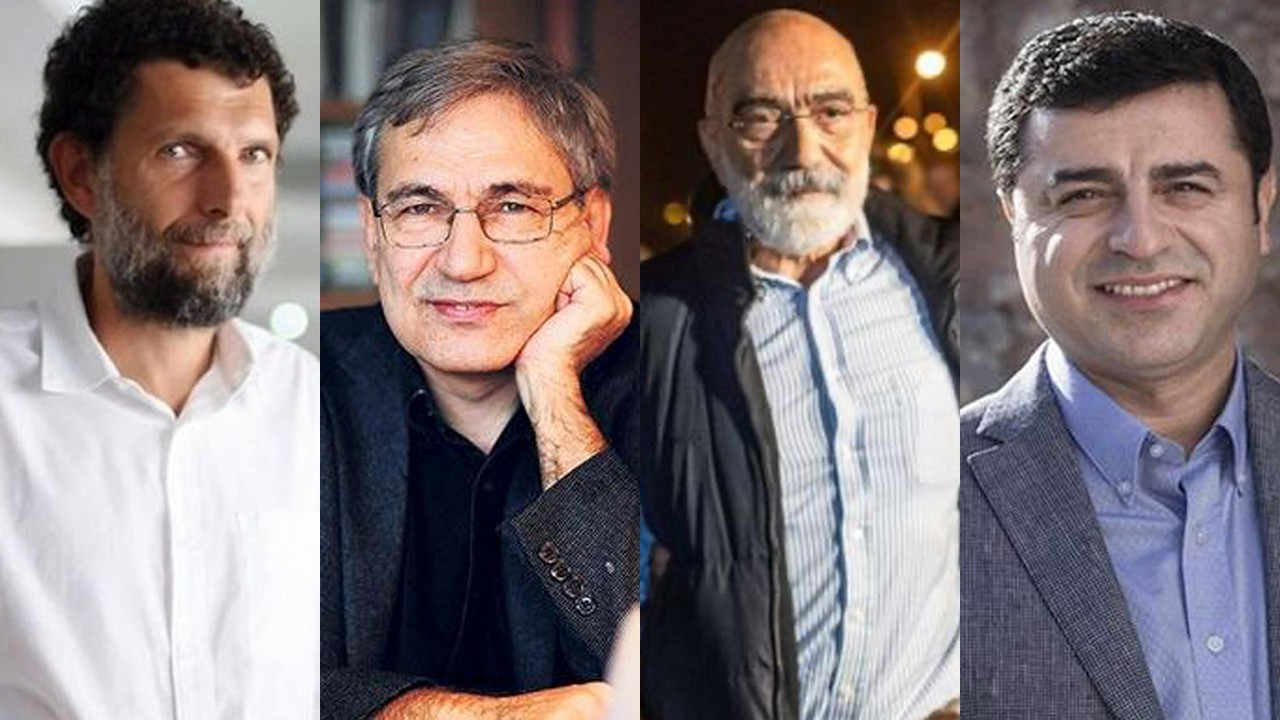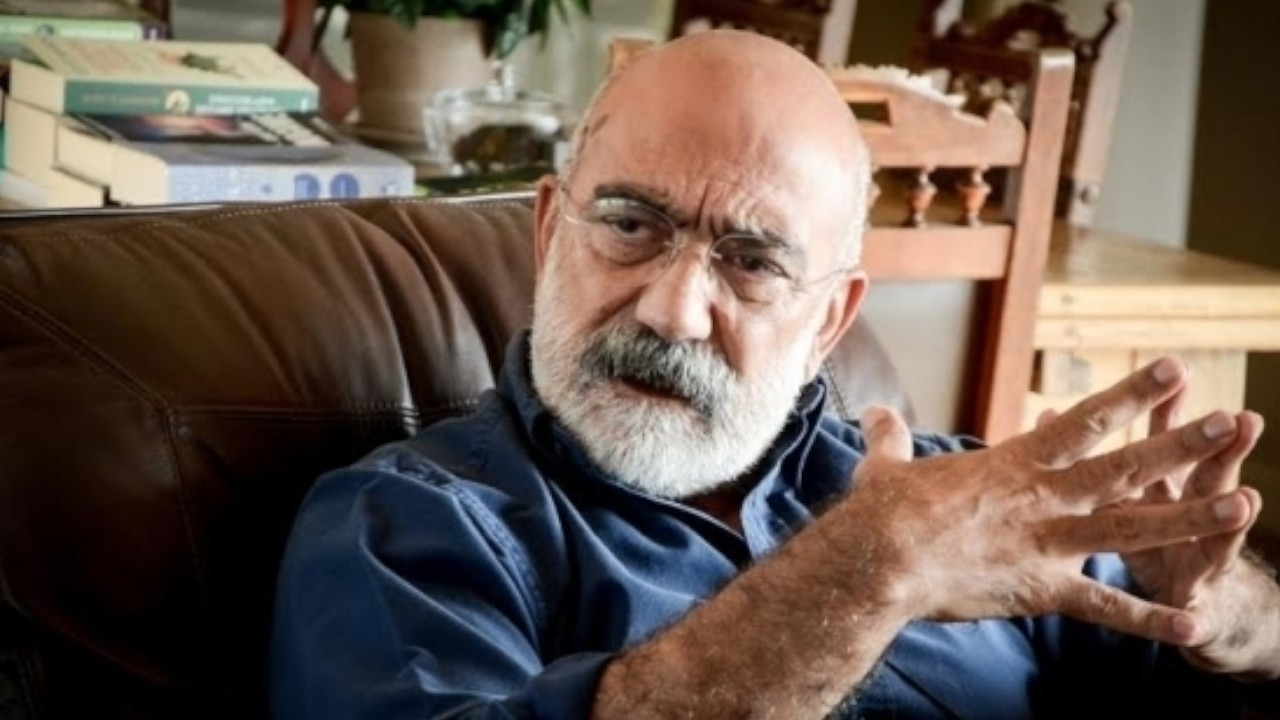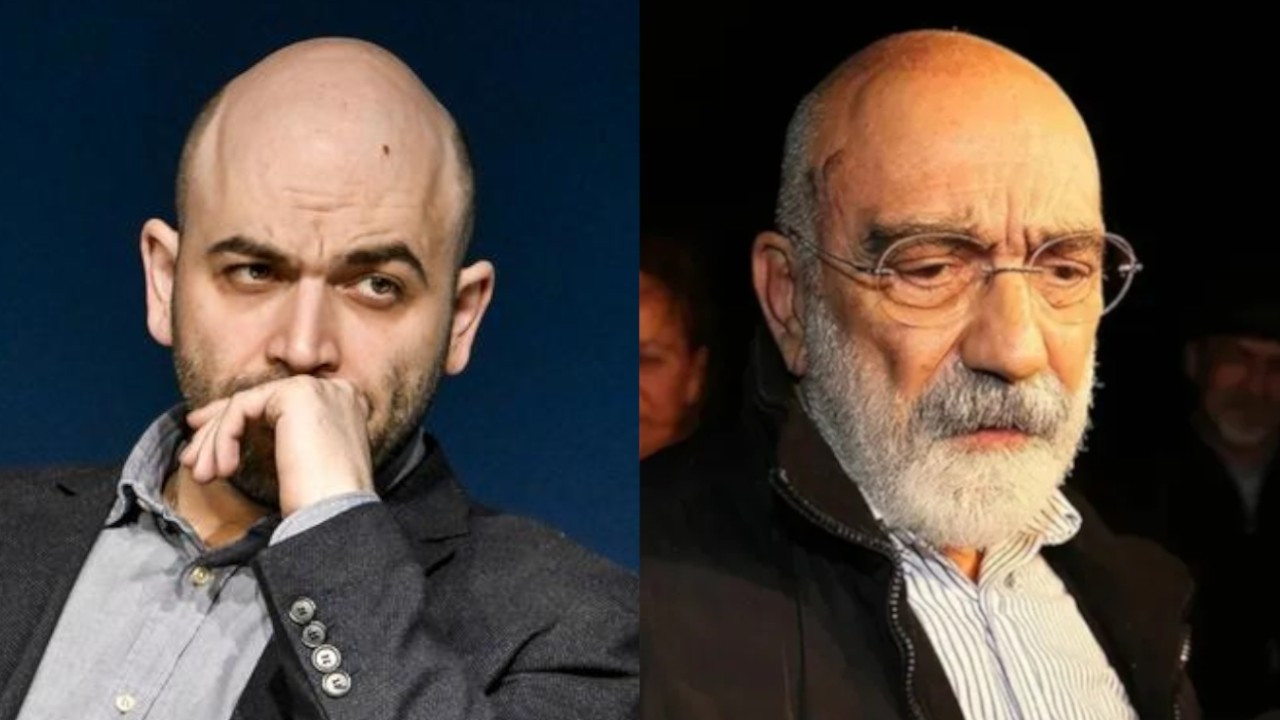Turkey violated novelist Ahmet Altan's rights, European Court of Human Rights rules
The European Court of Human Rights has ruled that Turkey violated the rights of prominent novelist Ahmet Altan's rights. The court also ordered Turkey to pay Altan 16,000 euros in non-pecuniary damages.
Duvar English
The European Court of Human Rights (ECHR) on April 13 ruled that Turkey violated the rights of prominent novelist Ahmet Altan's rights.
According to the European court, Altan's right to liberty and security, right to have lawfulness of detention decided speedily by a court and freedom of expression were violated.
The court also ordered Turkey to pay Altan 16,000 euros in non-pecuniary damages.
Altan was arrested in September 2016 over his alleged links to the movement of U.S.-based Islamic preacher Fethullah Gülen, the group widely believed to have carried out the July 15, 2016 failed coup attempt.
He was handed an aggravated prison sentence for "attempting to overthrow the government" on Feb. 16, 2018.
Following his appeal, the Court of Cassation on July 5, 2019 overruled the aggravated prison term that was handed on coup charges and ruled that Altan be sentenced for "intentionally aiding an armed terrorist organization," referring to the Gülen movement, which is officially called the Fethullahist Terrorist Organization (FETÖ).
The Istanbul 26th Heavy Penal Court then abided by the Court of Cassation ruling and sentenced Altan to 10 years and six months in prison for "aiding a terrorist organization without being a member of it" on Nov. 4, 2019. The court also ruled for his release on condition of judicial control.
His freedom was short-lived. The Istanbul Chief Public Prosecutor’s Office appealed the ruling that set him free, which led to his rearrest on Nov. 13, 2019.
Altan took his case to the Constitutional Court on Nov. 21, 2019 after the appeals against his rearrest were dismissed, saying that he was rearrested despite the inexistence of the necessary conditions for imprisonment.
In his individual application, the prominent novelist also said that his right to freedom of expression, liberty and security were violated.
The top court, however, dismissed his application on Dec. 2, 2020 on the grounds that he is kept behind bars based on a "conviction" rather than an "accusation."
According to the Constitutional Court, Altan's claims that the heavy penal courts are not impartial and independent are "baseless."
The European Court of Human Rights on April 13 noted that there was no indication that Altan's actions had been part of a deliberate plan to overthrow the government. It also said that in view of the fact that the novelist's detention had not been based on any plausible grounds of suspicion of a criminal offence, the interference with his right to freedom of expression had been legally unjustified.
"The Court found that the applicant's criticisms of the President's political approach could not be seen as an indication that he had prior knowledge of the attempted coup," the court said.
"Therefore the logic applied in the present case by the authorities – equating those activities to the offences with which the applicant had been charged – could not be regarded as an acceptable assessment of the facts," it said.
Ankara ignored previous rulings
The court said Altan's freedom of expression was violated because his detention could not be justified by law. But it ruled it could not be established beyond doubt that Altan's detention had served an ulterior purpose.
Veysel Ok, one of the lawyers who applied to the ECHR, said it was obvious that Altan's detention was political and that the court should have found a violation in that regard.
"Ahmet Altan was arrested because he was targeted by the political power and media close to the government. The court ruled that his detention was not political. The ruling is lacking in this regard," he told Reuters.
While ECHR decisions are binding, Turkey has ignored several recent rulings, including calls to release philanthropist Osman Kavala and pro-Kurdish politician Selahattin Demirtaş.

 Turkish society can't normalize unless political prisoners are freed: Nobel laureate Orhan PamukHuman Rights
Turkish society can't normalize unless political prisoners are freed: Nobel laureate Orhan PamukHuman Rights Swedish journalists call for immediate release of prominent author Ahmet AltanHuman Rights
Swedish journalists call for immediate release of prominent author Ahmet AltanHuman Rights Italian writer Saviano pens letter to Altan: Your imprisonment must concern us allHuman Rights
Italian writer Saviano pens letter to Altan: Your imprisonment must concern us allHuman Rights